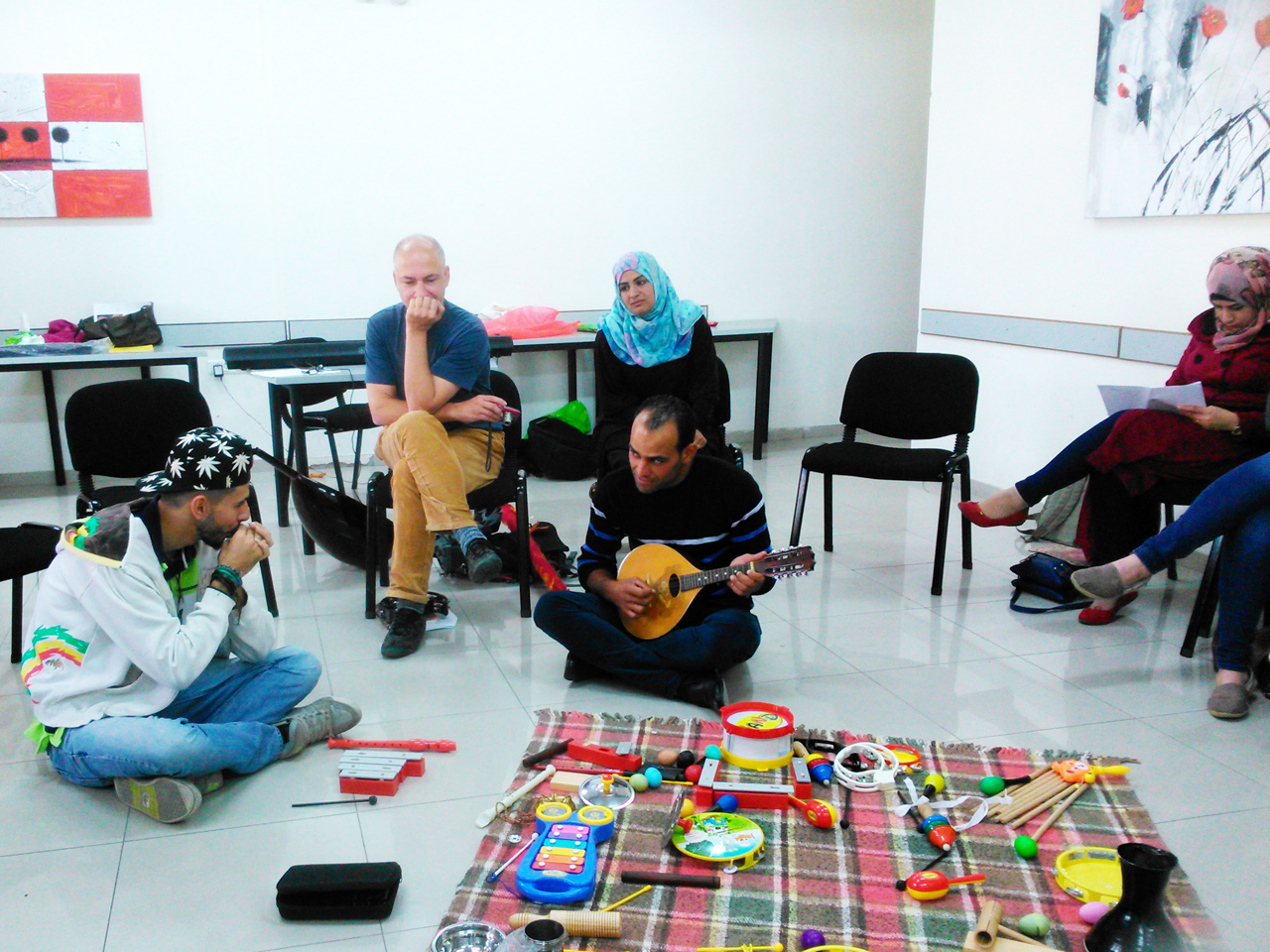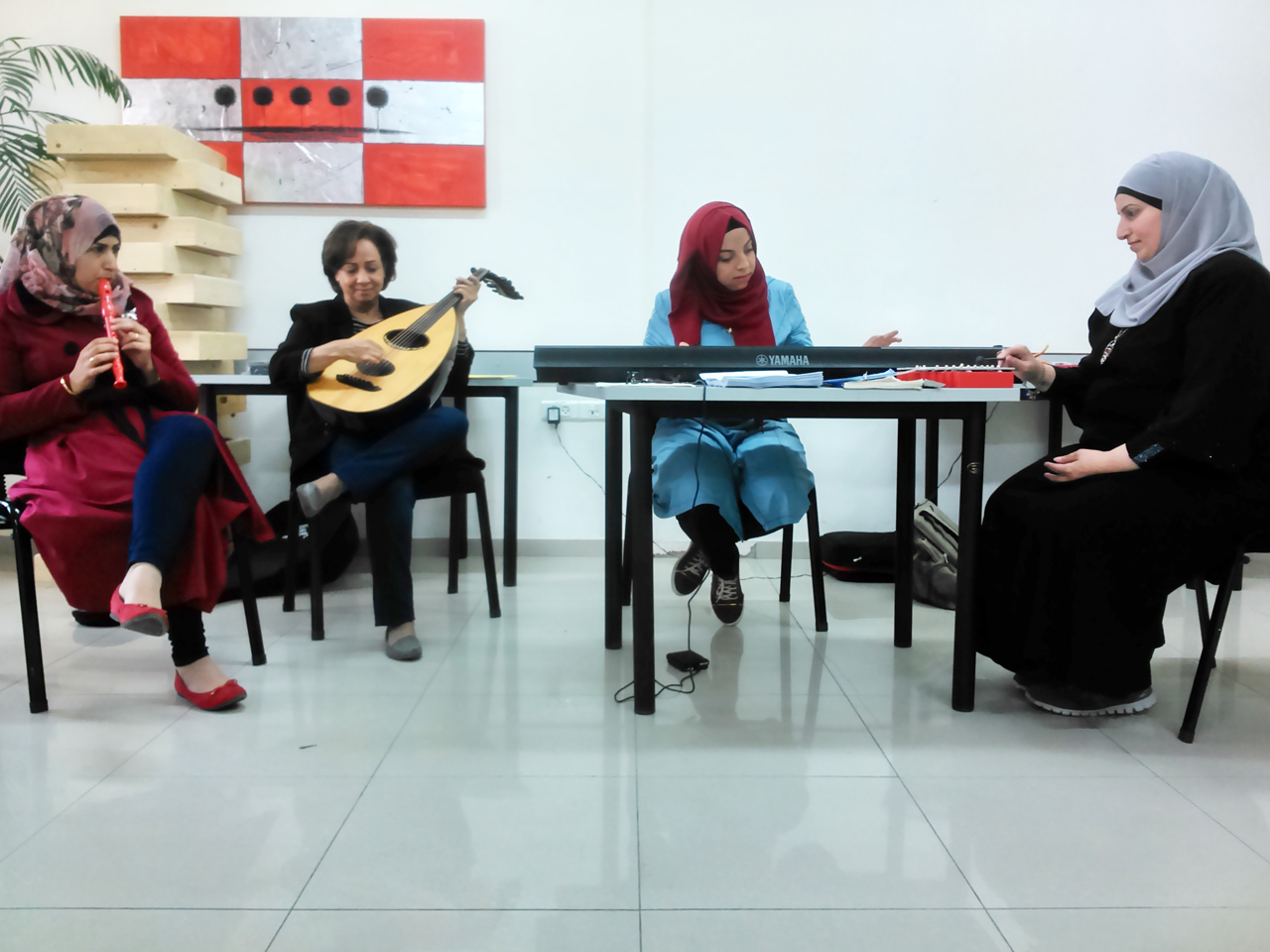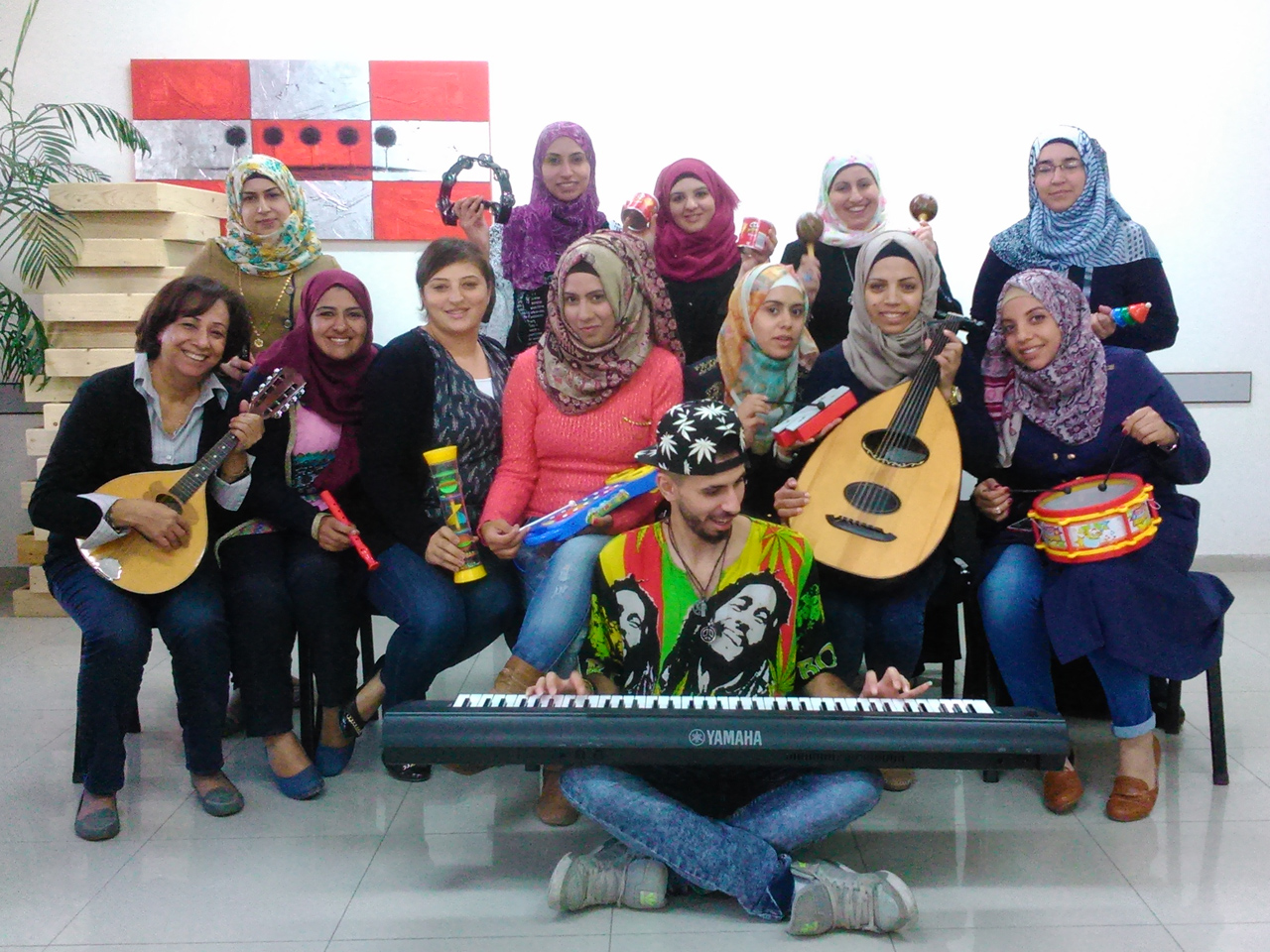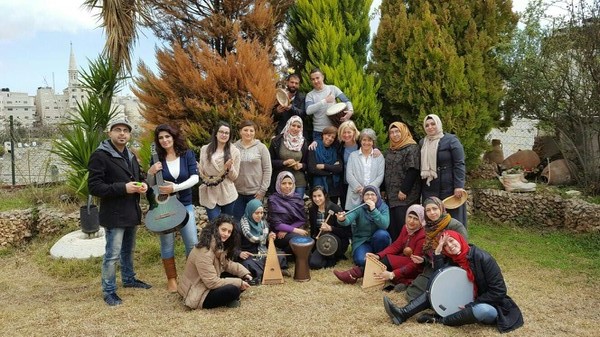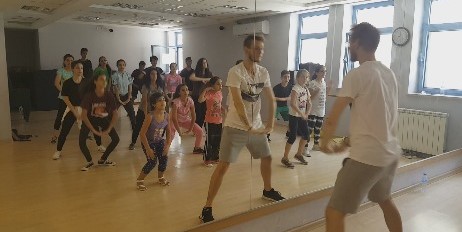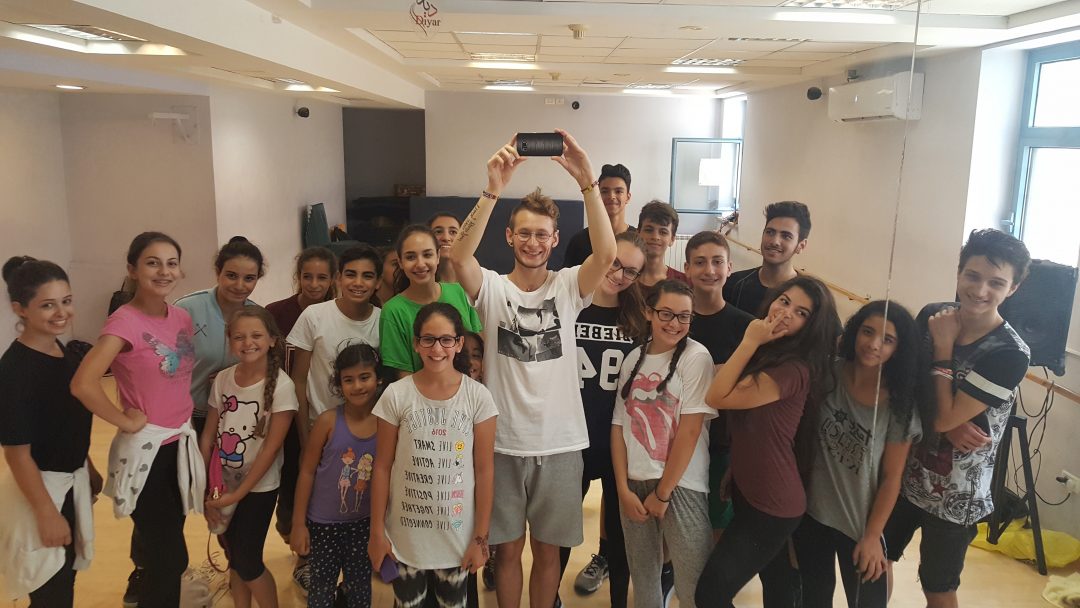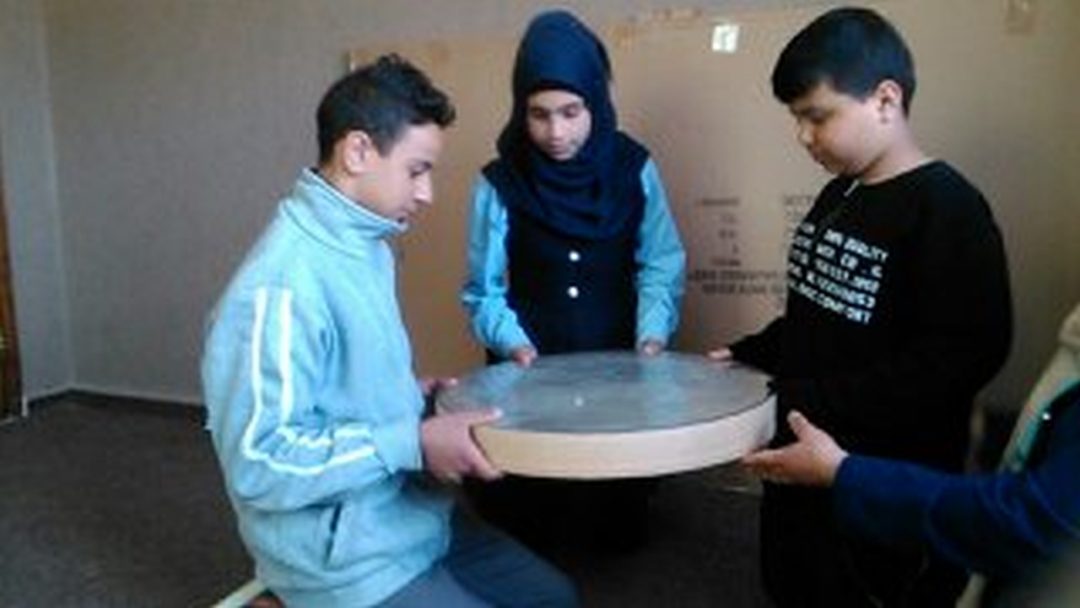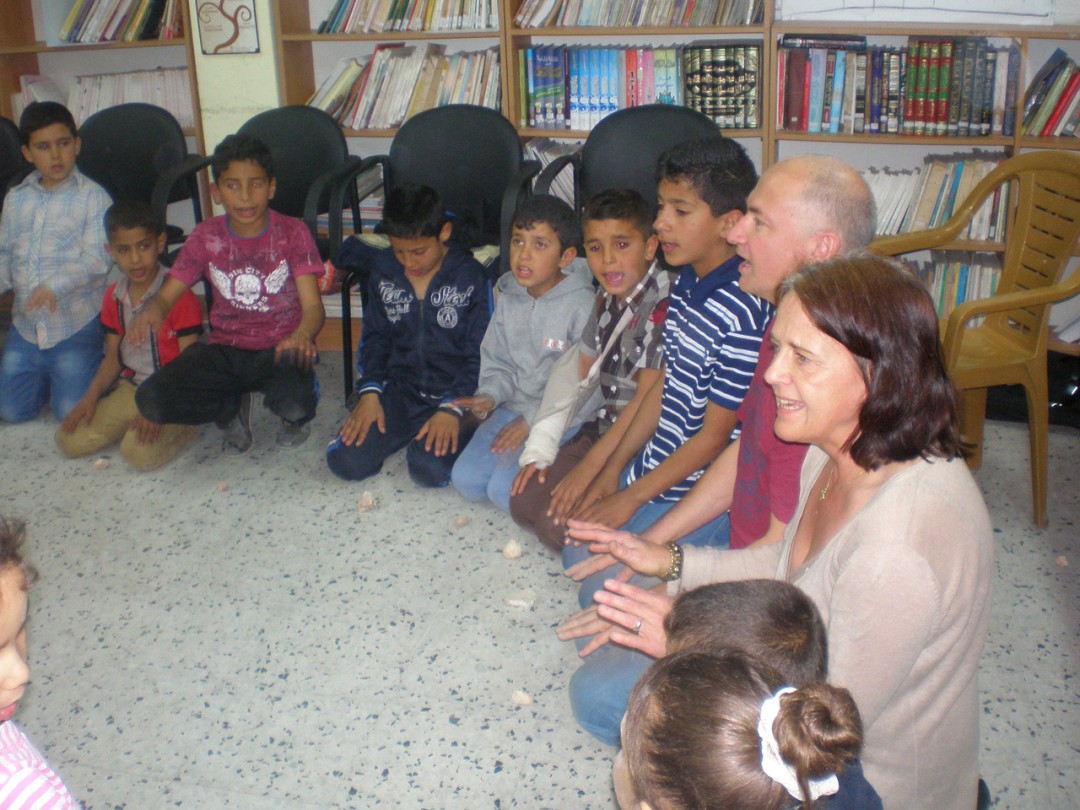Music therapy
The meaning of music as a resilience factor has been effectual explored. The direct impact of music in the limbic system bypasses the evaluative brain areas and goes straight to the emotions area. Through this process, music offers space for changes.
Music therapy as trauma therapy helps in the first place to stabilize, and activate the ressources of the patient.
Our approach:
1) We offer music therapy formations on-site, where skilled workers like Psychologists, social workers, teachers, musicians or other therapists get the possibility to experience thebasics of music therapy as well as to use it themselves.
So started for instance in fall 2016 a cooperative work with the “Wings of Hope for Trauma” institute in Bethlehem, so that we can offer a two years formation in music therapy there. This formation should go through several block-seminars, and should give the possibility to the participants to become independant music therapists.
Seminar contents:
- Basics of music therapy – insight into the different methods
- Manipulation of the different instruments and overview of their use
- Musical self-awareness
- Supervision
2) We work in different locations, with people having a hard life situation. Here, music is especially appropriate, because we can bypass articulated language, and music can be even more effective.
After our successful first formation block in music therapy last fall, with 14 participants (unfortunately not even a single man), we will conduct a second block at the end of February. This time, I’ll go with a new collegue – Swaantje Paetzolt from Leipzig, a big expert in music therapy- and I am really happy that she got interested and enough time to step into our work!
Participants of the October 2015 workshop in Bethlehem – first contact with different instruments.

